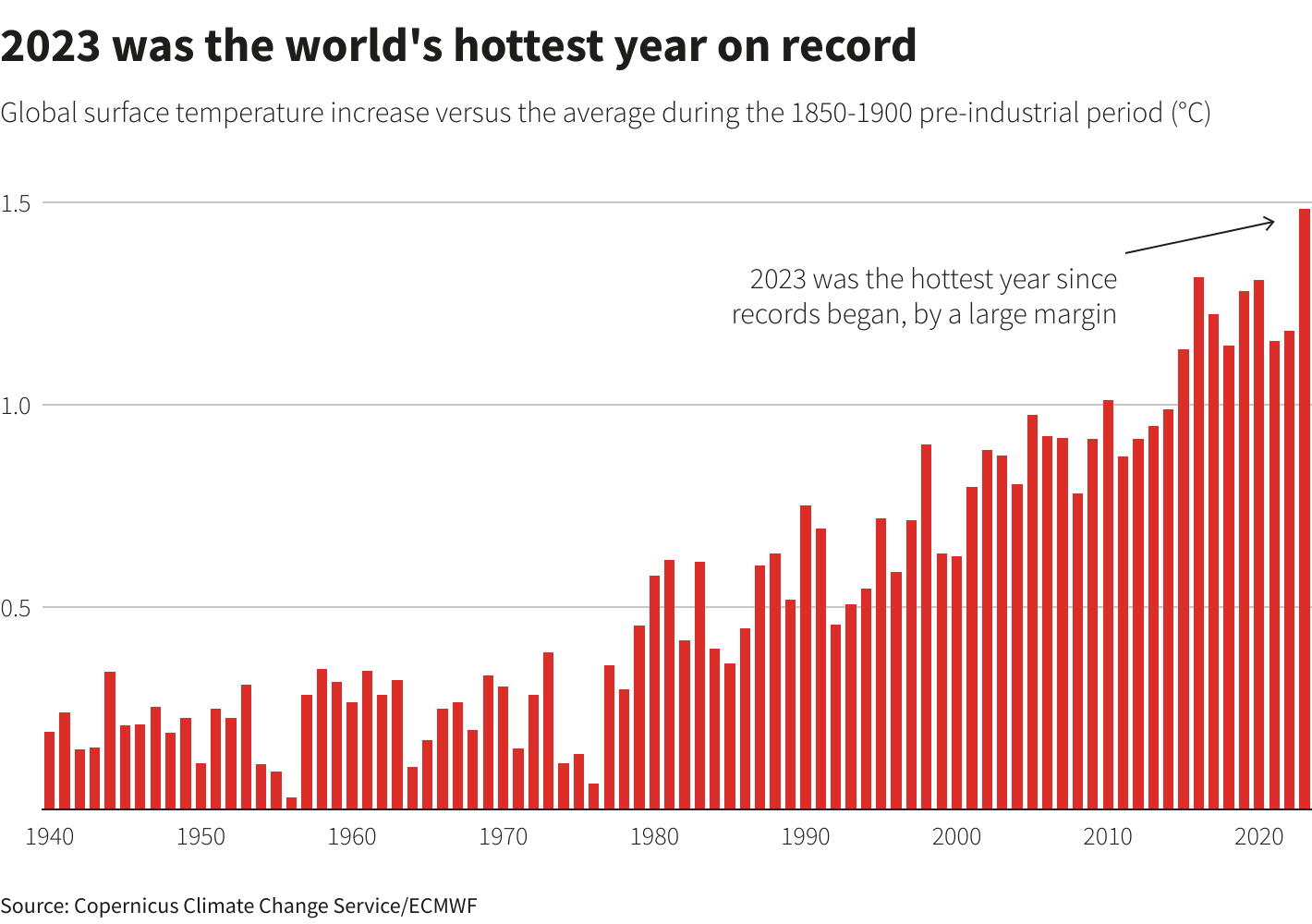
Global sea level rose faster than expected in 2024, mostly because of ocean water expanding as it warms, or thermal expansion.

The year 2024 was the world’s warmest on record globally, and the first calendar year in which global temperatures exceeded 1.5°C above its pre-industrial levels.

Every year, the International Space Station produces some of the world's best photography. Here are the best photos of 2024 from the space station.

This year is now virtually certain to beat 2023 as the hottest year on record. It will also be the first full year to surpass 1.5C above pre-industrial levels across the majority of observational records.

The prize honors innovation at Google DeepMind and in academia. Three researchers share the award for using machine learning to predict proteins' 3D shapes and design the molecules from scratch.

John Hopfield and Geoffrey Hinton won for discoveries that paved the way for the AI boom.

July 22, 2024, was the hottest day on record, according to a NASA analysis of global daily temperature data. July 21 and 23 of this year also exceeded the previous daily record, set in July 2023.

May capped a full year of monthly record-breaking temperatures. Globally, rising heat is causing hundreds of deaths, disrupting education and displacing communities.

A solar storm that filled Earth's skies with shimmering curtains of light in May 2024 was so intense that its effects were felt, even at the bottom of the ocean.

April marked another "remarkable" month of record-breaking global air and sea surface temperature averages, according to a new report by the EU's climate monitor published on Wednesday.

The fourth global coral bleaching event, announced this week, is an urgent wake-up call to the world.

Europe's climate monitor said Tuesday that March was the hottest on record and the tenth straight month of historic heat, with sea surface temperatures also hitting a "shocking" new high.

Europe installed 18.3 GW of new wind power capacity in 2023. The EU-27 installed 16.2 GW of this, a record amount but only half of what it should be building to meet its 2030 climate and energy targets.

This year has a one-in-three chance of being even hotter than 2023, which was already the world's hottest on record.

Globally, December, January and February came in at 0.78C above average. But the last three months are part of a much bigger climate change picture.